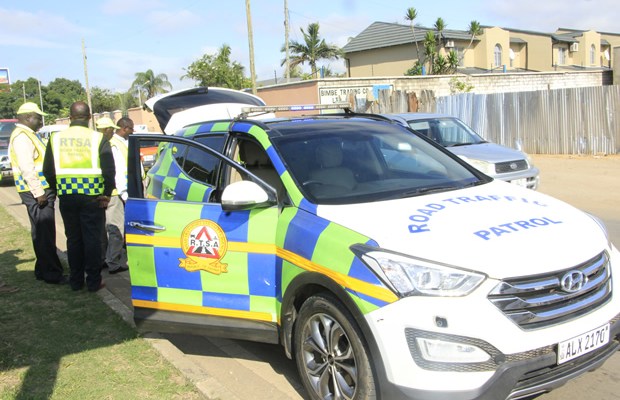The Road Transport and Safety Agency (RTSA) says it is concerned with the road safety profile of the country and the spiralling rate of accidents across the country.
According to the 2019 Road Accident Report, the major causes of road traffic crashes in the country include deficiencies in road infrastructure, motor vehicle mechanical conditions and human error which is the leading factor accounting for 87 percent.
Speaking at the commemoration of the Road Safety Week in Lusaka Yesterday, RTSA Board Chairperson Dr Cornelius Chipoma, explained that the theme for this year’s road safety week which was dubbed ‘’A Pledge for Safe and Inclusive Roads’’ is meant to generate awareness and demand accountability for road safety and inclusion of differently abled people.
Zambia and the world at large is adopting the spirit of inclusion in all endeavors and has recognized all kinds of voices from differently abled citizens.
RTSA will contribute immensely towards inclusion by using its mandate and influence over road infrastructure developers and transporters.
he said.
He added that in order to mitigate the pandemic on road traffic crashes and their related consequences, the agency has a consortium of target oriented road safety interventions under implementation which include fitting Global Positioning System (GPS) on all long distance PSV buses, equipping the travelling public with information to report drivers violating traffic rules and regulations as well as conducting routine traffic patrols.
So far over 250 PSV long distance buses have been fitted with GPS.
Dr Chipoma further said that in order to address the inadequate road signs, RTSA in collaboration with the Road Development Agency (RDA) will conduct road safety inspections (RSIs) on selected highways, install road signs on selected highways and identify the Road Traffic Signage gaps.
He explained that the agency’s key objectives for this year include generating civil society demand for strong leadership in road safety, informing policy change to assure a transport system that supports a socioeconomic future that includes all citizens and drawing on international best practice to enable strong leadership for the road safety within government agencies, NGOs, Universities and private road contractors among other objectives.
He said actualizing the outlined objectives is important in order for Zambia to contribute to achieving global road safety targets including Sustainable Development Goal target 3.6 that seeks to reduce road traffic deaths and injuries by 50 percent by 2020.
Meanwhile, Transport and Communications Minister Mutotwe Kafwaya said he is concerned with the road environment around schools and the rest of the road network as they are rarely designed and developed with consideration for the needs of children, persons living with disabilities, cyclists and pedestrians.
It is indeed deeply regrettable and unacceptable to be losing our school children, the vulnerable and different abled through road traffic accidents… this therefore calls for change in mind-set to ensure that our roads everywhere serve the needs of all.
he said.
The Minister revealed that his Ministry in collaboration with the Institute for Transport Development and Policy and the United Nations Environment had developed a Non-Motorized Transport (NMT) Strategy whose main objective is to facilitate safer pedestrian movements, especially around schools.
He said the minimum speed limits to be posted on urban roads and school areas would be 30 Kilometres per hour in order to encourage moderate vehicle speeds.
RTSA recently launched its three-year strategic plan (2019-2021) in an effort to accelerate the push to reduce road traffic accidents and deliver a safer, inclusive and economically enabling road transport system. The focus for the strategic plan is on attaining a 44 percent reduction in road fatalities and a 62 percent reduction in road traffic violations by 2021.

